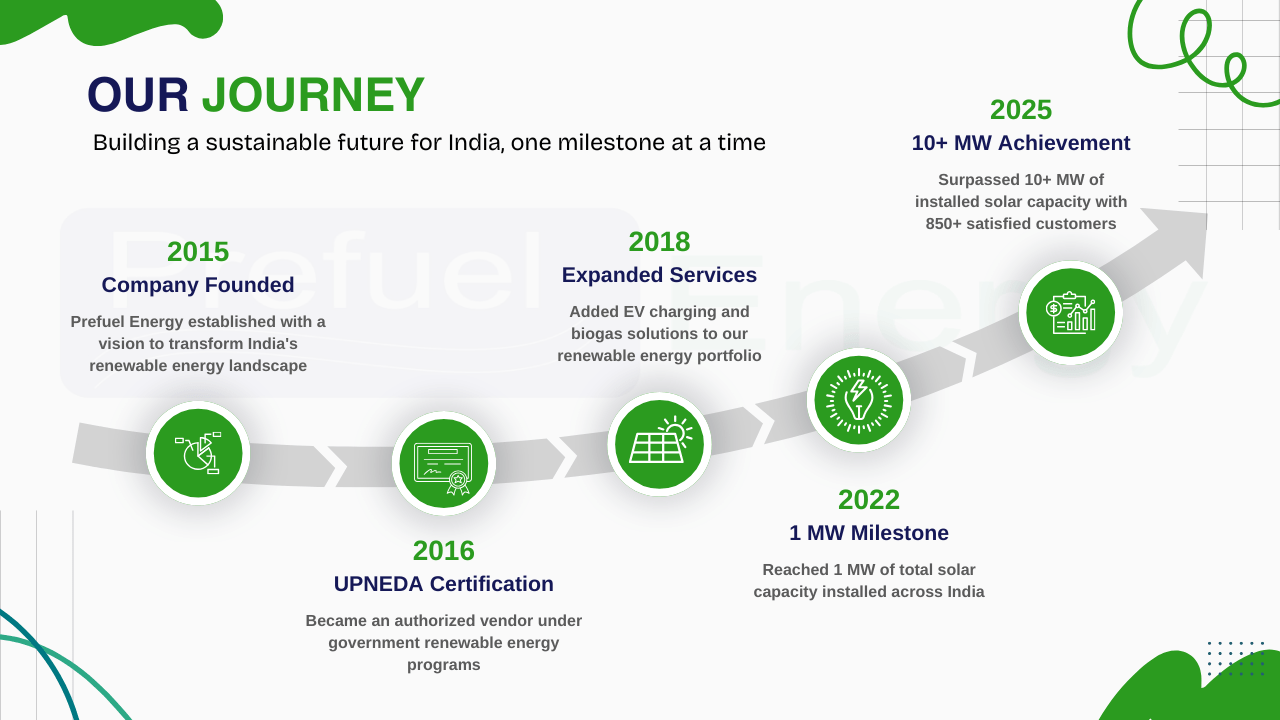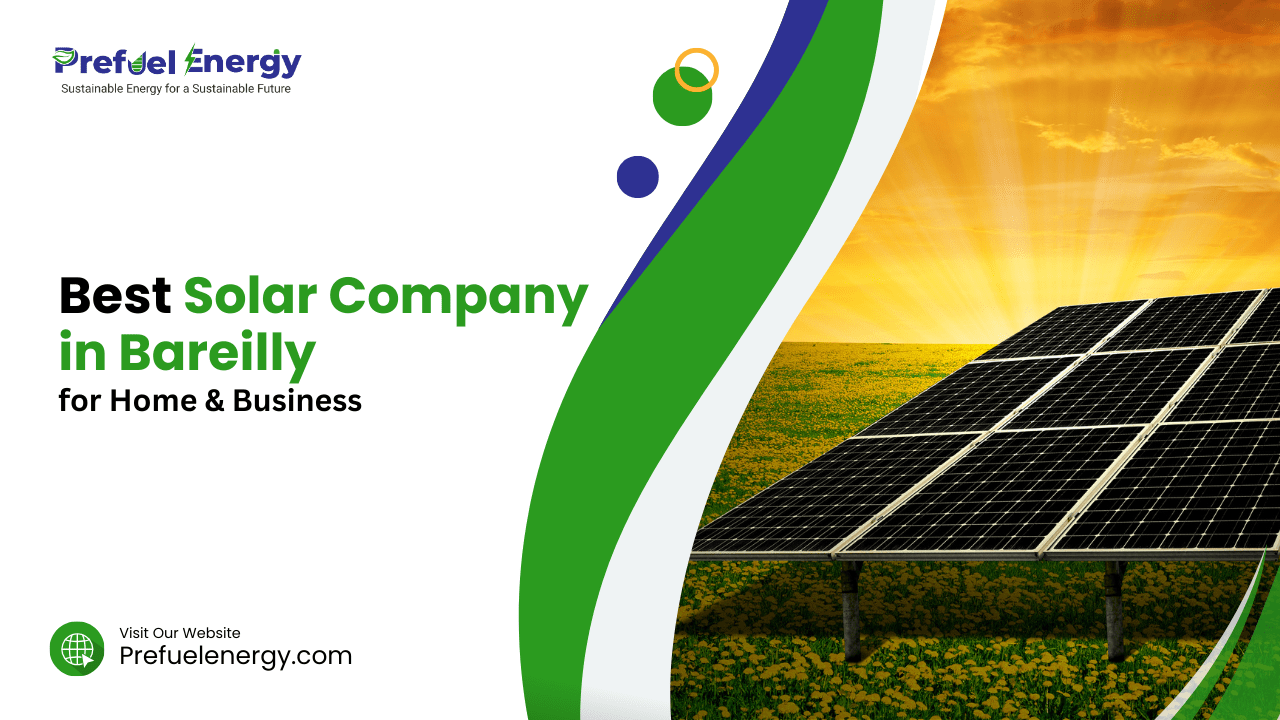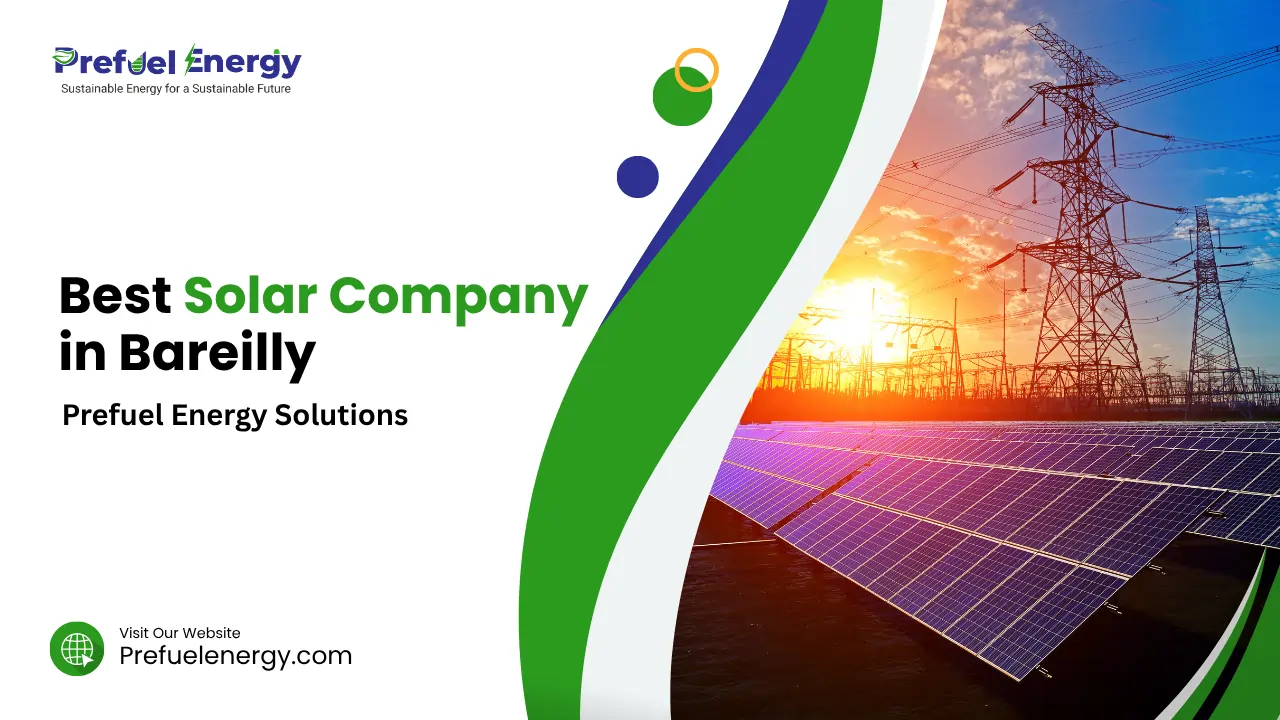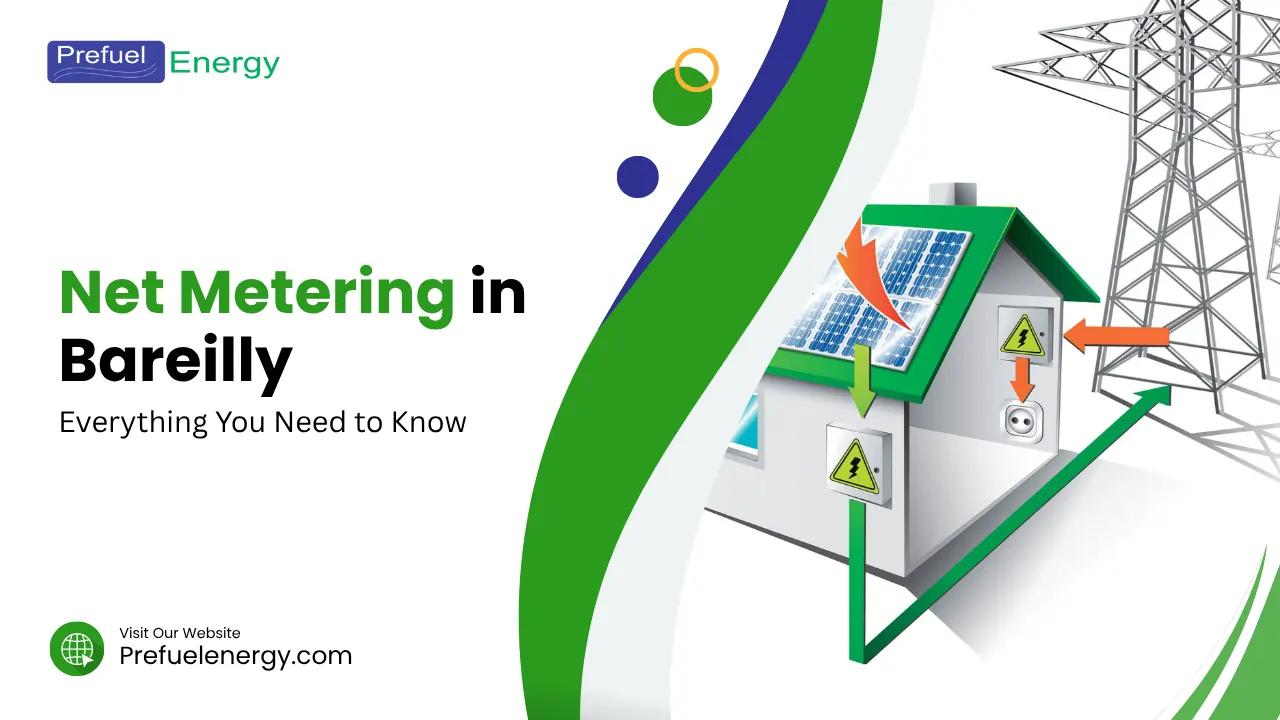Prefuel Energy - Agricultural Solution
Solar Water Pump Systems
Revolutionary solar-powered irrigation solutions that eliminate electricity costs while ensuring reliable water supply for your agricultural needs. Perfect for farmers and irrigation projects.
Brands We Work With






Why Choose Solar Water Pump?
Zero Operating Cost
Eliminate monthly electricity bills up to ₹15,000. Free solar energy for lifetime operation.
Reliable Water Supply
Consistent water flow even in remote areas with no grid connection. Works with battery backup.
Low Maintenance
Minimal maintenance with self-cleaning panels and durable pump components lasting 25+ years.
Government Subsidy
Available under PM-KUSUM scheme with subsidies up to 60% for individual farmers.
Increased Productivity
Higher crop yield with timely irrigation, supporting multiple cropping seasons per year.
Eco-Friendly
Zero carbon emissions contributing to sustainable agriculture and environmental protection.
Solar Water Pump Categories
3 HP Submersible Solar Pump
Ideal for borewell depths up to 100 feet
Motor Power
3 HP (2.2 kW)
Solar Array
3.5 kW
Water Output
3,000-5,000 L/hour
Head Range
30-100 feet
Price Range
₹3.5 - 5 Lakhs
Subsidy
Up to ₹2.1 Lakhs
5 HP Submersible Solar Pump
Perfect for deeper borewells and higher discharge
Motor Power
5 HP (3.7 kW)
Solar Array
5.5 kW
Water Output
5,000-8,000 L/hour
Head Range
50-150 feet
Price Range
₹5.5 - 8 Lakhs
Subsidy
Up to ₹3.5 Lakhs
2 HP Surface Solar Pump
Suitable for open wells and surface water sources
Motor Power
2 HP (1.5 kW)
Solar Array
2.5 kW
Water Output
2,000-4,000 L/hour
Suction Head
Up to 25 feet
Price Range
₹2.5 - 4 Lakhs
Best For
Open wells, rivers
3 HP Surface Solar Pump
Higher capacity for larger irrigation areas
Motor Power
3 HP (2.2 kW)
Solar Array
3.5 kW
Water Output
4,000-6,000 L/hour
Delivery Head
Up to 80 feet
Price Range
₹3.5 - 5.5 Lakhs
Coverage
5-10 acres
Floating Solar Water Pump
Innovative solution for ponds and water bodies
Motor Power
1-3 HP options
Solar Array
1.5-4 kW
Water Output
1,500-5,000 L/hour
Applications
Ponds, lakes, rivers
Price Range
₹2 - 6 Lakhs
Special Feature
Auto depth adjustment
Key Features
Buoyant Design
High-density foam floats that adjust to water levels automatically
Weatherproof
IP67 rated components resistant to water and weather conditions
Remote Monitoring
IoT-enabled system for remote operation and monitoring
Technical Specifications
System Components
Solar Panels
High-efficiency monocrystalline panels with 25-year warranty and anti-reflective coating
Motor & Pump
AC/DC compatible motors with stainless steel impellers and bronze bearings
Controller (VFD)
MPPT technology with soft start, overload protection, and dry run prevention
Water Level Sensor
Automatic start/stop based on water tank levels and borewell water availability
Performance Metrics
Return on Investment
3 HP Solar Pump - Cost Analysis
System Cost
₹4,50,000
Government Subsidy
₹2,10,000 (60%)
Farmer Investment
₹2,40,000
Monthly Electricity Savings
₹8,000 - ₹12,000
Annual Savings Breakdown:
Electricity Bills:
Diesel (if applicable):
Increased Yield (30%):
Total Annual Benefit:
....
₹1,00,000
₹50,000
₹75,000
₹2,25,000
Payback Period: 13 months
Complete recovery of investment in just over 1 year
20-Year Financial Projection
Total Investment:
₹2,40,000
Total Savings (20 years):
Net Profit:
₹45,00,000
₹42,60,000
Additional Benefits:
• Water availability increases crop yield by 30-40%
• Enables multiple cropping seasons per year
• Reduces dependency on monsoons
• Increases land value by 20-25%
• Carbon credits eligibility
• Insurance premium reductions
Environmental Impact
Saves 2,400 tons of CO₂ emissions over 20 years
Installation & Maintenance
Installation Process
Site Survey
Technical assessment of borewell depth, water table, and solar irradiance
System Design
Custom design based on water requirement and irrigation area
Solar Array Installation
Ground-mounted or elevated structure with optimal tilt angle
Pump Installation
Professional pump lowering and electrical connections
Commissioning
System testing, calibration, and performance optimization
Maintenance Schedule
Monthly (Owner)
• Visual inspection of panels and connections
• Clean solar panels with water
• Check water output and system performance
Quarterly (Technician)
• Electrical connections inspection
• Controller performance check
• Water level sensor calibration
Annual (Expert)
• Complete system performance audit
• Pump efficiency testing
• Warranty and insurance renewal
Annual Maintenance Cost
₹8,000 - ₹15,000 (includes all services)
Our Journey
Building a sustainable future for India, one milestone at a time

Your Trusted Partner in Renewable Energy
At Prefuel Energy, we’re committed to providing sustainable energy solutions that power your future while protecting our planet. Our team of experts works closely with you to design custom solutions that meet your specific needs and budget.
-
100%
Client Satisfaction -
10+
Years Experience -
24/7
Support
Government Approved
Authorized vendor under PM Suryoday Yojana and UPNEDA
We Help You to Grow Your Business
Hear from businesses and homeowners who’ve experienced the Prefuel difference



Latest Insights
Stay updated with the latest trends and information in renewable energy
Best Solar Company in Bareilly for Home & Business
Bareilly me solar demand har saal badh rahi hai. Log high electricity bills se pareshaan ho chuke hain.Isliye har koi...
Best Solar Company in Bareilly: Prefuel Energy Solutions
Bareilly mein solar energy ki demand teez gati se badh rahi hai, aur iske saath-saath best solar company in Bareilly ki talash...
Net Metering in Bareilly: Everything You Need to Know
Aapne kabhi socha hai ki aapke rooftop solar panels sirf bijli banakar nahi, balki monthly bill me bachat bhi kar...
Get Started Today
Get Your Free Energy Consultation
Fill the form below and our expert will get in touch with you




